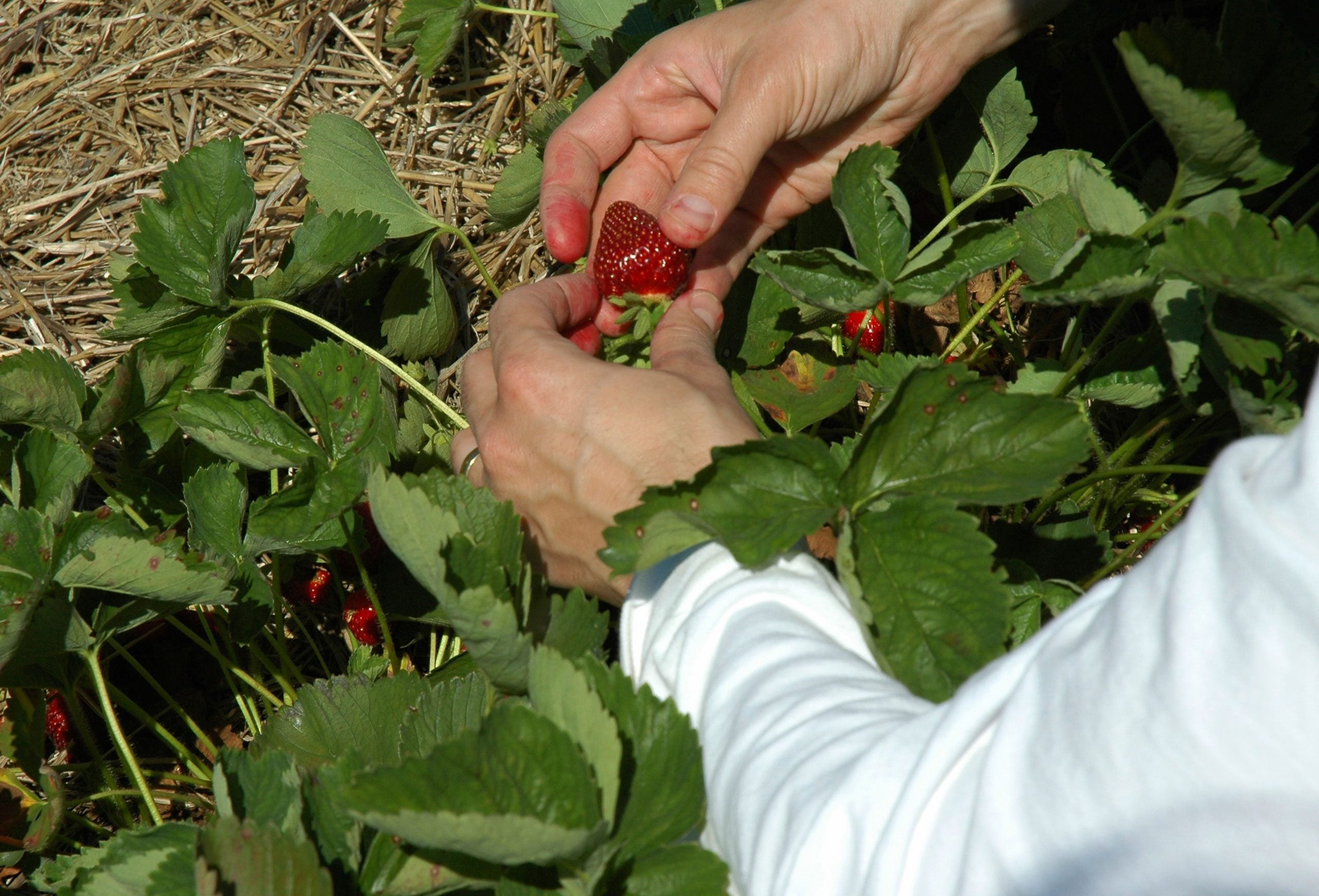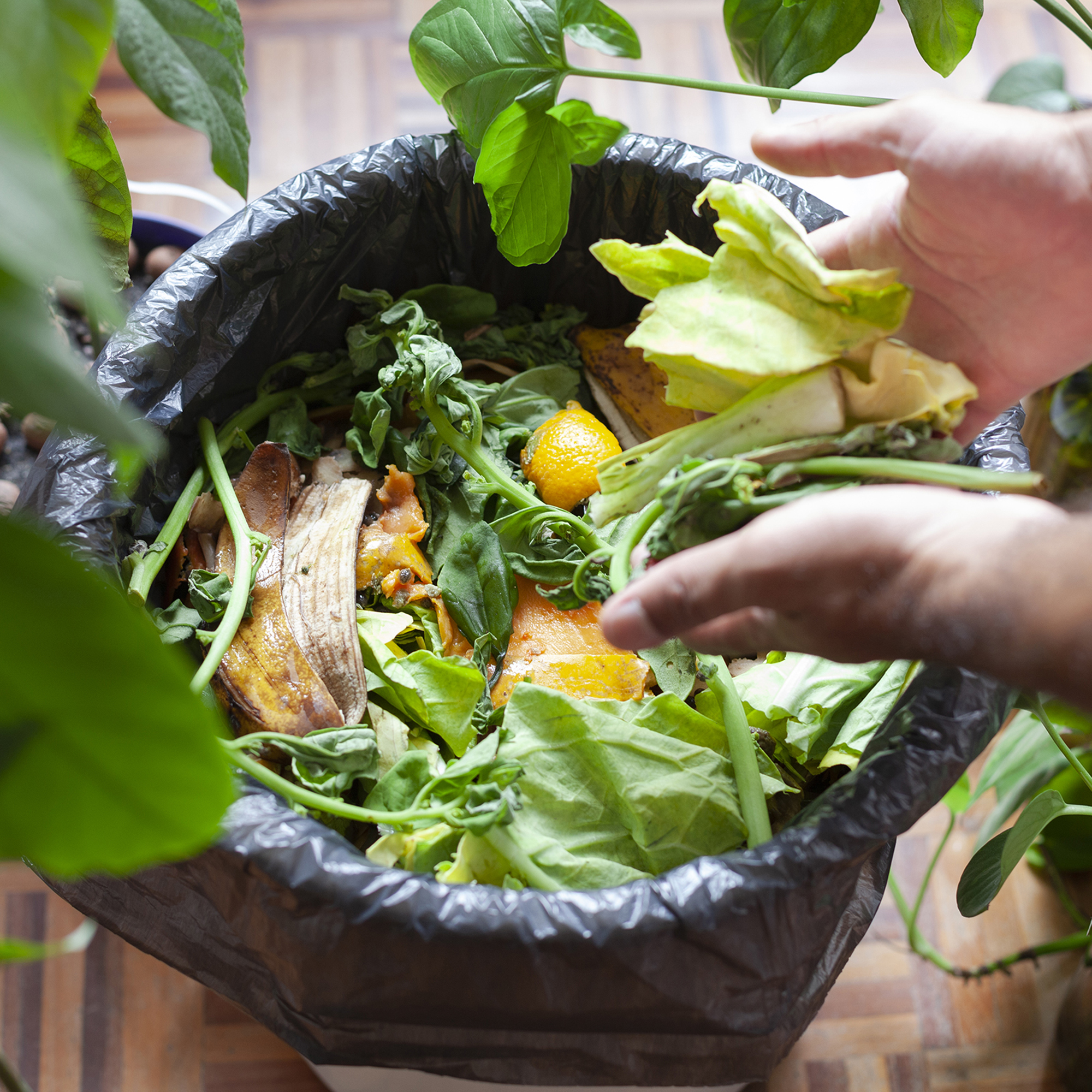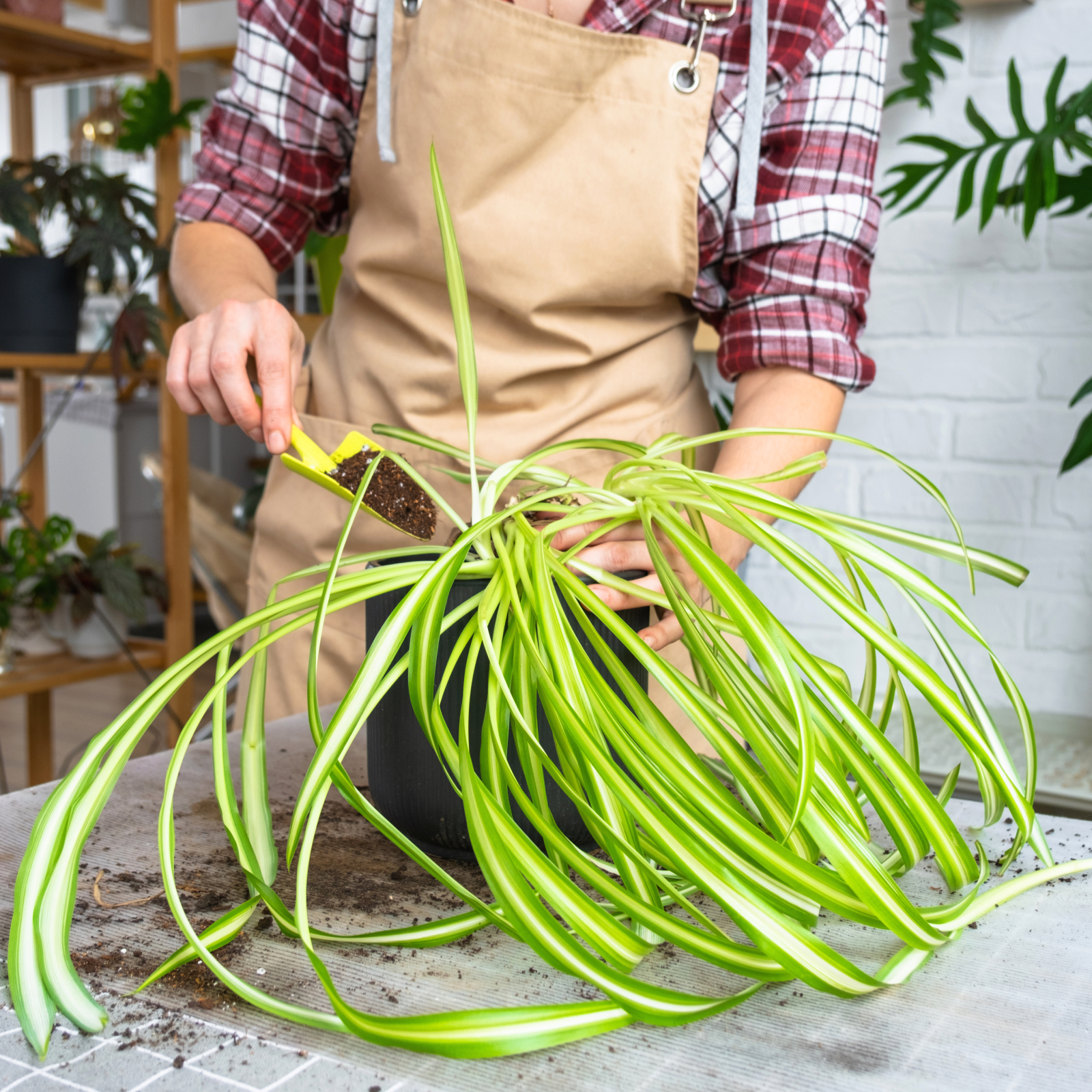Picking Strawberry Fruit: When And How To Harvest A Strawberry

If you love strawberries, you probably eat them frequently during peak season. Harvesting your own strawberries, either at a U-Pick farm or from your own patch, is rewarding and you get the freshest, most delicious berries possible. Knowing when and how to pick strawberries will allow you to get the most from this activity.
When to Pick Strawberries
Strawberry season only lasts three to four weeks, so it's crucial that you know not only how to harvest a strawberry plant, but also when strawberry harvest time begins so that none of them go to waste. In their first year of planting, the berry plants will certainly try to set fruit, but you should be firm and disabuse them of this idea. Why? If the plants bear fruit, all their energy goes into doing so instead of sending off runners. You want a big berry patch, yes? Pick the blossoms from the first year plants to allow the “mother” plant to produce healthy “daughter” plants. During the second year, the plants are usually ripe 28 to 30 days after full bloom. The largest berries develop at the center of each cluster. The fresh berries should be picked when they are completely red. Not all the berries will ripen at the same time, so plan on harvesting strawberries every two to three days.
How to Harvest a Strawberry
Once the berry is fully colored, pick the fruit with about one-quarter of the stem attached. Morning, when the berries are still cool, is the best time for picking strawberry fruit. Strawberries are delicate fruit and bruise easily, so care must be taken when harvesting. Bruised fruit will degrade faster, while unblemished berries last longer and store better. Some varieties of strawberry, such as Surecrop, are easier to pick than others, as they readily snap off with a portion of stem attached. Others, like Sparkle, bruise easily and care must be taken when snapping the stem off. The best way to harvest strawberries is to grasp the stem between your forefinger and thumbnail, then lightly pull and twist at the same time. Let the berry roll into the palm of your hand. Gently place the fruit in a container. Continue harvesting in this manner, taking care not to overfill the container or pack the berries. Picking berry varieties that cap easily is slightly different. Again, grasp the stem positioned right behind the cap and squeeze gently against the cap with your second finger. The berry should easily pull loose, leaving behind the cap secure upon the stem. Remove any damaged berries as you harvest the good ones to discourage plant rot. Don't pick berries with green tips, as they are unripe. Cool the berries as soon as possible once harvested, but don't wash them until you are ready to use them.
Storing Strawberries
Strawberries will stay fresh for three days in refrigeration but after that, they go downhill fast. If your strawberry harvest yielded you more berries than you can eat or give away, don't despair, you can salvage the harvest. Strawberries freeze beautifully and can be used later for desserts, smoothies, chilled strawberry soup, or anything that is cooked or pureed. You can also make the berries into jam; frozen strawberry jam recipes are easy to find and simple to make.
Gardening tips, videos, info and more delivered right to your inbox!
Sign up for the Gardening Know How newsletter today and receive a free copy of our e-book "How to Grow Delicious Tomatoes".

Amy Grant has been gardening for 30 years and writing for 15. A professional chef and caterer, Amy's area of expertise is culinary gardening.
-
 4 Superfast Composting Methods: Turn Waste Into Garden Gold In 30 Days Or Less
4 Superfast Composting Methods: Turn Waste Into Garden Gold In 30 Days Or LessTry the fastest composting methods to turbocharge your pile and transform kitchen scraps and garden waste into finished compost in just a few weeks.
By Mary Ellen Ellis
-
 Best Spider Plant Soil – Complete Soil Guide And Expert Tips For Keeping Plants Happy
Best Spider Plant Soil – Complete Soil Guide And Expert Tips For Keeping Plants HappySpider plants are fun and easy plants to grow, but what is the best soil for a spider plant? Selecting the right soil is important so they can thrive.
By Bonnie L. Grant